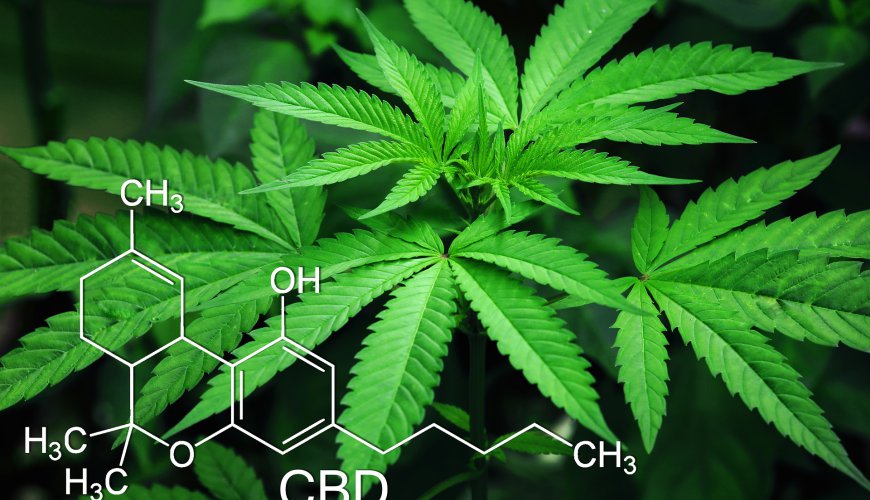How to prepare for the first visit to an aesthetic medicine office?
Jan 6, 2018 - Aesthetic Medicine
April 19, 2024 5:11am

Parkinson's disease is the second most common neurodegenerative disease after Alzheimer's disease. There is currently no cure for this disease. Can can cannabis and cannabis be used to protect the brains of Parkinson's disease patients or to alleviate their symptoms?
Parkinson's disease is a chronic degenerative disease of the central nervous system affecting mainly the areas of the brain that are responsible for movement control. It usually occurs in people over 60 years of age (although some forms of early disease occur in people under 40 years of age) and is more common in men than in women.
Parkinson's disease is characterized by the death of neurons in the brain area known as the black midbrain. These neurons are responsible for the production of dopamine, one of the neurotransmitter molecules required for the proper transport of signals in the brain. Reducing dopamine secretion disturbs the transmission of signals from the base testicles - the area responsible for traffic control. As a result, the primary symptoms of the disease are disorders of the motor system.
In addition to the characteristic convulsions commonly associated with the disease, other symptoms include stiffness, postural instability and bradycardia (motion weakness). In subsequent stages of the disease, disorders of the proper functioning of the senses, sleep and emotional problems (depression or anxiety), combined with dementia in the last stages of the disease, may occur. In about 5% of cases, the disease is the result of a mutation of some genes. However, in most patients, the cause is unknown and probably a combination of genetic predisposition and environmental factors.
Currently, the disease is incurable and the medical intervention is limited to the treatment of symptoms. One of the main forms of treatment, levodopa (or L-DOPA), used to compensate for reduced dopamine levels, is no longer effective after several years and causes uncontrolled movement in patients (dyskinesia). Therefore, new compounds should be studied to protect against neuron death and/or to alleviate disease symptoms.
The use of cannabis to treat Parkinson's disease was described for the first time in Europe in William Richard Gowers' (Philadelphia, PA, USA: P. Blakiston's Son & Co, 1888) "Manual of Nervous System Diseases" as early as the end of the 19th century. After a hundred and thirty years, let's examine the scientific evidence.
Cannabis compounds known as cannabinoids (more than 100 of which are described in the literature) affect the human brain by binding to structures called CB1 receptors (mainly present in neurons and responsible for the psychoactive effects of some cannabinoids) and CB2 receptors (mainly present in glial cells and responsible for the inflammatory response, among other things). These receptors together with endogenous molecules that activate them (endocannabinoids) form part of the endocannabinoid system, the intercellular communication system in our bodies.
Most cannabinoids have great neuroprotective potential. By binding neurons to the CB1 receptor, they can protect them from harmful stimuli. They also show anti-inflammatory properties through the CB2 glial receptor. Last but not least, cannabinoids are important antioxidants that protect neurons from damage caused by oxidative stress (a very important factor in Parkinson's disease) regardless of the receptor, either because of their molecular structure or through other noncannabinoid receptors, such as the PPAR nuclear receptors that act as antioxidants. These properties have been demonstrated in numerous pre-clinical studies (in vitro and on laboratory animals) on various diseases such as Alzheimer's disease, Huntington's disease, multiple sclerosis and lateral atrophic sclerosis (motor neuron disease).
The area of the nervous system that is affected by Parkinson's disease has a high density of cannabis receptors CB1. This makes sense, given that one of the functions of the endocannabinoid system is to control motion, usually by inhibiting motion. Given the importance of the endocannabinoid system in this structure, speculations have been made about the benefits of manipulating the system for Parkinson's disease.
It was found that in Parkinson's disease the proper functioning of the endocannabinoid system is disturbed, both in animal models and in patients with symptoms of the disease. The study showed an increase in the amount of CB1 receptor in neurons of the base testicles, an increase in the amount of CB2 receptor in glial cells responsible for inflammation and an increase in the level of endocannabinoids. This has been interpreted as a reaction of the body to damage caused by the disease. Some, however, believe that the endocannabinoid system is an innate brain defense mechanism.
Pharmacological studies in animals have shown the neuroprotective potential of antioxidant compounds such as Δ9-tetrahydrocannabinol (Δ9-THC, the main psychoactive component of marijuana), cannabidiol (CBD, the second most important cannabinoid that has no psychoactive activity) and Δ9-tetrahydrocannabicannabarin (Δ9-THCV), as well as those with anti-inflammatory properties via the CB2 receptor (e.g. Δ9-THCV). Δ9-THCV). Although CB1 receptor activation is a neuro-protective reaction used in other conditions, it is contraindicated in Parkinson's disease because it exacerbates the symptoms of the motor system by weakening the maintenance of the patients' body. There are data indicating that blocking CB1 receptors with Δ9-THCV increases uncontrolled movement in animal models of Parkinson's disease.
Observations suggest that cannabis preparations may weaken motor symptoms. In some studies, patients who have consumed cannabis have seen some of the symptoms of the disease improve: tremor, bradycardia, uncontrolled movements due to treatment, sleep problems and pain reduction. However, in other studies, patients did not experience a reduction in the symptoms of tremor after burning a single dose of cannabis. In another study in which CBD was administered, patients reported the resolution of some psychotic symptoms and sleep problems.
© Copyright accupc.com | All Rights Reserved.
Komentarze (0)